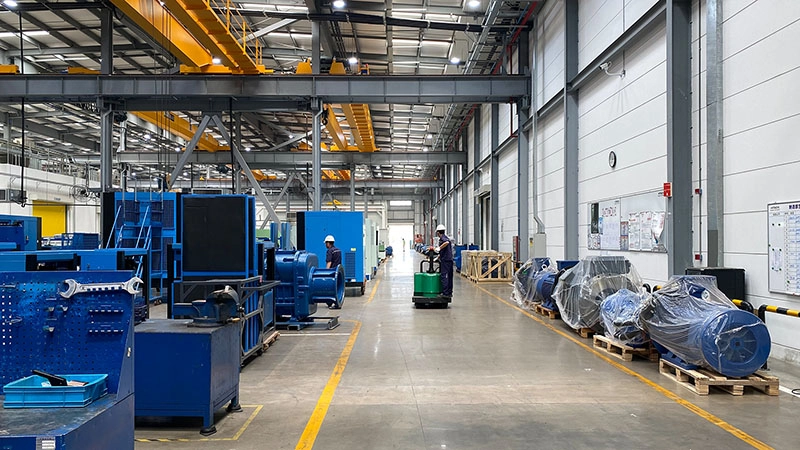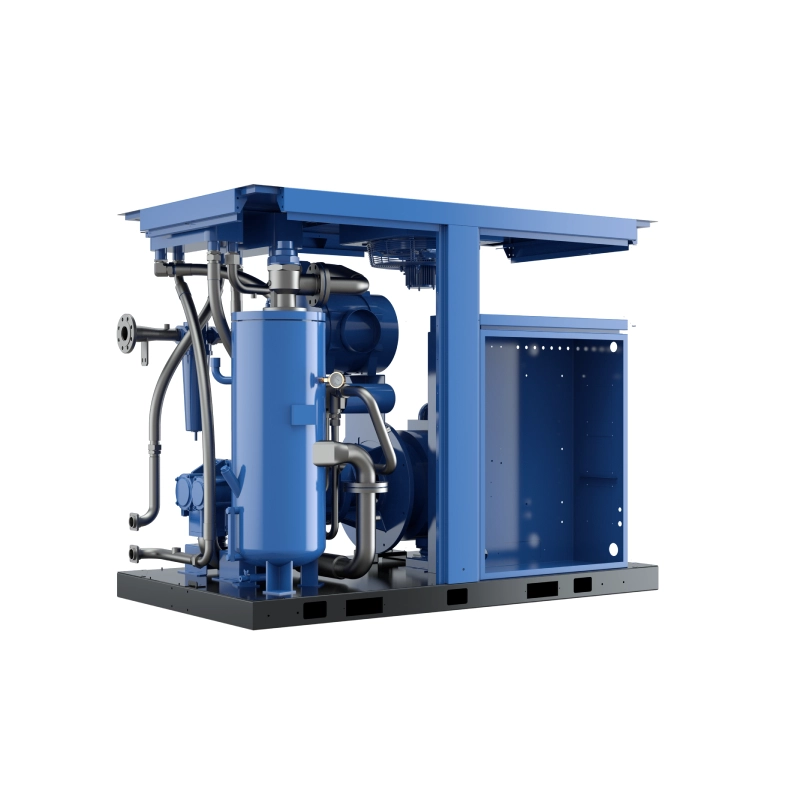6 Surefire Tips to Deal With Air Compressor Noise: Quieting Your Workspace Effectively
Release time: 2025-07-19
Air compressors are essential tools in various industries and home settings, but their noise levels can often be disruptive. Whether you’re in a residential area or a busy workshop, excessive air compressor noise can create an uncomfortable environment. If you’re struggling with this issue, don’t worry — this article will provide six effective tips to reduce air compressor noise and improve your working environment.
In this guide, we’ll show you how to quiet your air compressor and optimize your space for better comfort. These tips are cost-effective and easy to implement.

1. Soundproof the Compressor Area
One of the most straightforward ways to minimize air compressor noise is by soundproofing the area. This involves using materials that absorb or block sound waves, preventing them from traveling through walls or ceilings.
Soundproofing Strategies:
- Acoustic Panels: Install foam panels to absorb sound and prevent echoes.
- Insulation: Adding fiberglass or foam insulation to your walls or ceiling helps reduce sound transmission.
- Heavy Curtains or Blankets: Hanging thick curtains or blankets near the compressor will act as a noise barrier.
By soundproofing the compressor area, you can significantly reduce the overall noise levels.
2. Use a Compressor Muffler
A compressor muffler is a quick, affordable solution to reduce noise. It works by absorbing and reducing the sound created by the airflow from the compressor’s exhaust.
Muffler Benefits:
- Absorbs Airflow Noise: Mufflers reduce the turbulence and speed of air, which in turn minimizes the noise produced.
- Simple Installation: Mufflers are easy to add and often come with compressor-specific models.
Investing in a muffler is a simple and effective way to cut down on air compressor noise, especially for portable units.
3. Place the Compressor on a Vibration-Isolating Mat
Vibration from air compressors can amplify the noise, especially when the vibrations travel through floors or walls. To combat this, place your compressor on a vibration-isolating mat.
Vibration Isolation Benefits:
- Reduces Noise Transfer: The mat absorbs vibrations, preventing them from echoing through the room.
- Protects Flooring: Vibration mats also help preserve the integrity of your flooring by reducing wear and tear.
Rubber mats or foam pads designed for vibration isolation can help keep the noise down and create a quieter environment.
4. Choose a Quieter Compressor Model
If the noise is still an issue after trying other methods, consider upgrading to a quieter air compressor model. Modern compressors are built to be quieter, with features specifically designed to reduce noise.
What to Look for in a Quieter Compressor:
- Low Decibel Rating: Look for compressors with decibel ratings below 70 dB.
- Oil-Free Compressors: These compressors are generally quieter than oil-lubricated models.
- Noise Reduction Features: Many new models come with noise-reducing features such as soundproof covers.
A quieter air compressor may be a higher initial investment, but the long-term benefits in noise reduction are worth it.
5. Create a Soundproof Enclosure
For more extreme noise issues, a soundproof enclosure is a great solution. This box will completely contain the noise generated by the compressor.
Building a Soundproof Enclosure:
- Ventilation: Ensure your enclosure is well-ventilated to prevent overheating. Install holes or a fan system for proper airflow.
- Soundproof Materials: Use thick materials like plywood, drywall, or acoustic panels to line the enclosure and absorb sound.
- Easy Access: Make sure the enclosure allows easy access for maintenance and repairs.
A soundproof enclosure is an excellent option for industrial settings or areas where the compressor runs frequently.
6. Regular Maintenance to Prevent Excessive Noise
Excessive noise can sometimes be a sign of mechanical problems. Regular maintenance of your air compressor can help ensure it runs smoothly and quietly.
Maintenance Tips for Quiet Operation:
- Tighten Loose Parts: Loose bolts or components can lead to increased vibration and noise. Tighten these parts regularly.
- Change the Oil: If your compressor is oil-lubricated, change the oil to ensure smooth operation.
- Replace Worn Parts: Worn-out belts or gaskets can cause unnecessary noise. Replace damaged components promptly.
A well-maintained air compressor will perform more quietly and efficiently, ensuring long-term reliability.
Reducing Air Compressor Noise Made Easy
Dealing with air compressor noise doesn’t have to be a daunting task. With the right strategies in place, you can reduce the noise and create a more comfortable and productive environment. Whether you decide to soundproof your space, install a muffler, or upgrade to a quieter compressor, there are various methods that will help you reduce compressor noise effectively.
By following these 6 surefire tips to deal with air compressor noise, you’ll experience a noticeable improvement in the overall sound levels of your workspace. Implement these solutions today and enjoy a quieter, more efficient environment!


